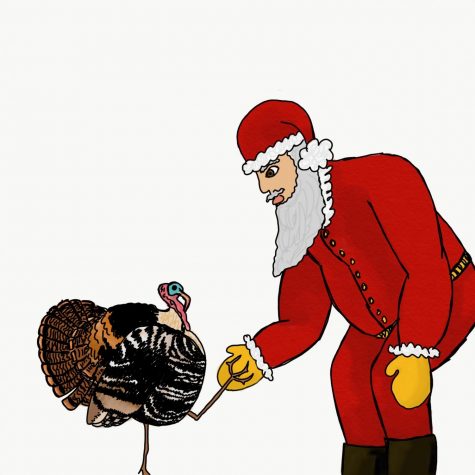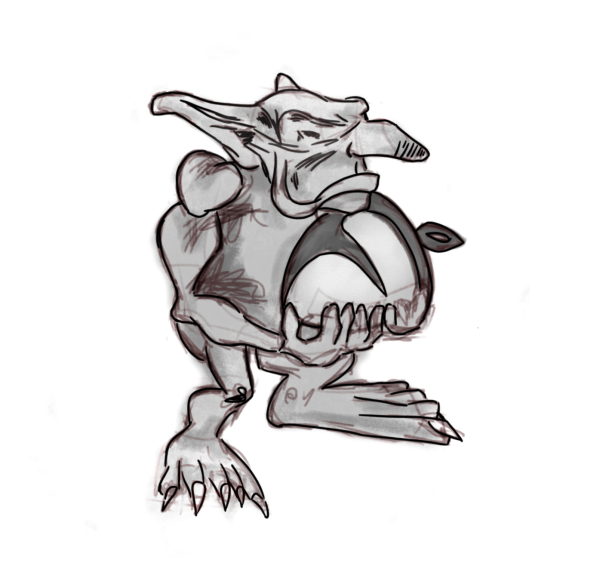Letter to the Editor: Rebuttal to “Plot Twist! The Vegans Are Right”
Editor’s note: This letter to the editor was in response to a pro-veganism article written by reporter Paulina Gonzalez the previous issue.
In the February edition of Wolfpacket, a student made the argument that a vegan diet is the best for human health and environmental health. While their arguments are valid, they unintentionally overlooked crucial aspects of their claim that have a very significant impact on human and environmental well-being. As stated in the original article, the population of earth will reach 9.4 billion by 2050, which is 2 billion more than it is currently. This will increase not only the demand for meat, but also the demand for living space, farmland, factories, and roads. This problem will be a constant regardless of diet choice. That being said, it will become increasingly important for the environment to be maintained; not simply the air quality and greenhouse gases, but also the soil quality and phosphorous supply.
While a vegan diet may seem to fill these requirements, it is actually detrimental to a variety of factors in the environment as well as our own bodies. Recent calculations suggest that each vegan in the world will only require a half acre of land to produce their food. However, with the current population, if everyone were to “convert” to veganism, that would increase the land required to produce food. Earth only has 7.68 billion acres of land that is inhabitable and able to be farmed. In order to increase this number, humans would need to terraform deserts such as the Gobi, Sahara, and Australian Outback which would require billions of gallons of water. Also, this land is needed for living spaces. To convert enough space to have the necessary space for farming, living, factories, and roads, we would also need to cut down more areas of forest, specifically in China, India, Brazil, and Indonesia where populations are growing to an extreme size. This would destroy everything that environmental vegans work for.
On top of that, the main problem with veganism is the increase in farm production, which is already causing massive encroachment on natural habitats. The soy, coffee, and chocolate industries are one of the main perpetrators. Another industry that is invading the animal kingdom is the clothing industry. Polyester and other synthesized materials are produced in factories that have a large impact on greenhouse gases. Another problem posed by increased farm production is the degradation of soil quality due to constant farming. This would exhaust soil minerals in only a few years time, making a vegan or vegetarian diet unsustainable.
Regarding the personal health problems, there is a deal of misrepresentation. The cancer causing meats are the processed meats such as hot dogs and bologna, while red meats as a whole are only listed as possible carcinogens. While red meats do cause an increase in risk of heart disease or high blood pressure, those problems are mainly due to genetic predisposition and other lifestyle choices regarding exercise and alcohol consumption. I do not deny that an excess of red meats lead to health complications, however, an excess of anything will cause that. For instance, recent studies show that a prolonged, standard vegetarian diet can lead to genetic mutation that increases likelihood of certain cancers. A more direct and overt health detriment is found in developing adolescents. A study that compared vegetarian, vegan, and omnivorous diets in teens showed that a vegan or vegetarian diet with supplements, there was still a large deficiency in iron and Vitamin B and without supplements, a deficiency in all vital minerals and vitamins except Vitamins C and D, calcium, zinc, and potassium. These vitamins and minerals are essential in mental and physical development.
I agree that the beef industry should be limited in order to save the environment, however I do not believe that a vegan diet is a beneficial choice; this would be going against millions of years of evolutionary fine-tuning that made humans apex predators and foragers. What I propose is a dietary shift to what is called a modified omnivorous diet which limits red meat consumption and emphasizes poultry and low trophic level fish. It would save the soil and land necessary to encourage human growth as well as the atmosphere. There are many other reasons why a global shift to veganism is unrealistic, but I simply stated scientific and medical reasons in order to contradict the original article and to reference other reasons would be unnecessary. However, it is ultimately up to the individual to decide what diet is right for them and it is their obligation to respect others’ dietary choices.
Hello there! Our goal is to provide relavent, engaging journalism for readers of all ages. Your donation will support the student journalists of the Wolfpacket at Claremont High School, and will allow us to purchase equipment, print our monthly issues, and enter in journalism competitions. We appreciate your consideration!








